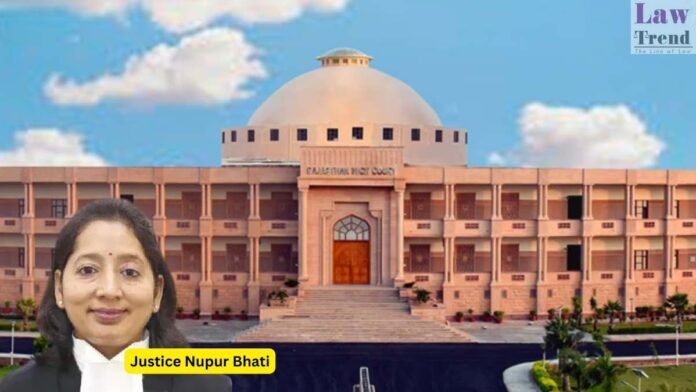In a significant judgment that underscores the principles of fair justice, the Rajasthan High Court ruled that litigants should not suffer due to the absence or inability of their counsel to make alternate arrangements for representation. The judgment was delivered in Phoolaram v. Bajranglal & Ors. [S.B. Civil Writ Petition No. 14628/2024] by Dr. Justice
To Read More Please Subscribe to VIP Membership for Unlimited Access to All the Articles, Download Available Copies of Judgments/Order, Acess to Central/State Bare Acts, Advertisement Free Content, Access to More than 4000 Legal Drafts( Readymade Editable Formats of Suits, Petitions, Writs, Legal Notices, Divorce Petitions, 138 Notices, Bail Applications etc.) in Hindi and English.




